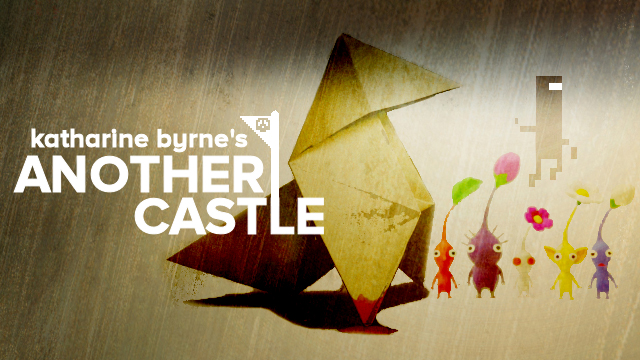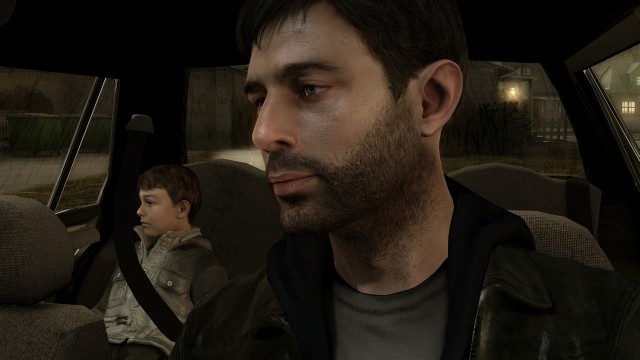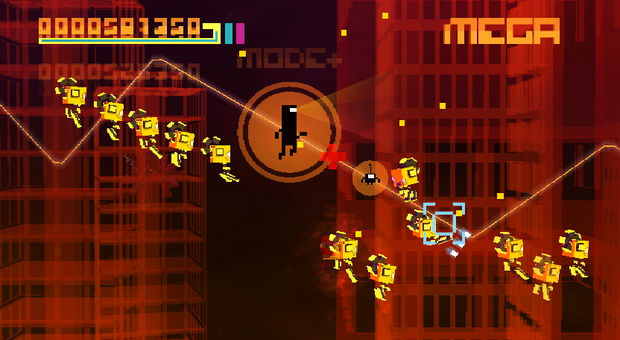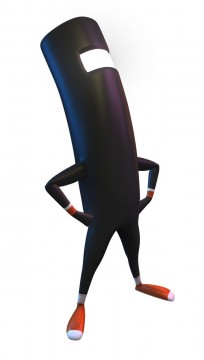
But then the fifth and final trial (where Ethan must drink a vial of poison to get the final clue to Shaun’s whereabouts) completely turned this assumption on its head. Granted I didn’t have complete control over my choice here– I found you couldn’t not drink the poison once you’d picked it up– but I really, really, didn’t want to drink it. I’d been through so much for this child by this point, not just with Ethan, but across all four playable characters– I’d made him do his homework and watched him eat dinner in what’s probably the world’s most depressing scene in video game history, I’d been almost killed by a bomb in a house-fire, a car crusher, and butchered by a mad doctor, and I’d also risked my dignity in an incredibly awkward strip-tease– but knowingly ending Ethan’s life for the sake of his son? That was a whole different kettle of fish. I wanted to walk away several times. It was too cruel, too tragic, having to die so I could save Shaun, and I must have spent a good ten minutes just staring at the screen trying to work up the courage to hit the button prompt. Of course, those that have played the game will know it’s not poison after all, but it was by far one of the toughest moments in the entire game, even more so than deciding whether or not to shoot the drug dealer.

Heavy Rain starts with the death of Ethan’s eldest son, but it’s the kidnapping and drowning of his youngest that pushes him to his absolute limits.
The funny thing is, though, when I look back on those decisions in Heavy Rain, I sometimes wonder why they were so hard to make. After all, I had no qualms whatsoever about exploiting the lives of my Pikmin so long as my life remained unharmed, so what made the drug dealer so different? I won’t lie– when he said, “I’m a father too,” that was it; that was enough. But it made me think– if Pikmin could utter a few more words than their cute little meeps and beeps, would I feel differently about them? Because it’s not just his own death that Olimar starts thinking about over the course of the game– the death of his Pikmin also occupy a place in his thoughts, and sometimes his observations are downright chilling. When a bomb-rock unwittingly claims some of your yellows, for instance, Olimar writes, “Oh, horrors! A bomb-rock explosion engulfed my Pikmin! That last horrified facial expression is burned into my memory…” Likewise for when players lose all of their Pikmin:
“The Pikmin have all perished because of my own carelessness. I am an utter disgrace as a leader… How can I continue to collect parts without them? Still the Onions join me in low orbit, as if this Pikmin extinction had never happened. I shan’t sleep tonight…”
I must admit, I never felt great when I lost entire legions of my Pikmin, but I think the reason why I felt much more ambivalent toward them was mostly due to Olimar himself. He may feel the pangs of guilt every now and then, but if you read some of his other journal entries, you’ll notice how distanced he remains as a narrator:
“When I see the Pikmin engaged in fierce battle with the other creatures of this world, I often grow uneasy wondering why they never attack me… Could it be that they actually view me as a parental figure? A strange, disturbing thought…”
Quite, especially when these so-called “children” are dying for him in battle every day, but it’s interesting to note that he always seems to remain outside the action of these “fierce battles” despite viewing himself as their leader. Elsewhere, he also remarks how the Pikmin “always carry their prey back to the Onions” too, even though we as Olimar are nearly always the one who instructs them to attack (and salvage) these creatures in the first place. Viewed in this light, it would seem that Olimar is quite a surprisingly selfish kind of character, and when he discovers that the Pikmin themselves seem rather indifferent about the concept of death as well (“The reds continue through the flames, completely oblivious to any Pikmin burning around them…” he writes when he discovers the reds are impervious to fire), I think the game makes it incredibly easy for us to slip into the same kind of detached mindset. If they have no understanding about the value of their own life, why shouldn’t I use them to my own advantage?

If you saw CommanderVideo’s death coming then you’re a wiser gamer than I.
Of course, that’s a pretty loaded question in itself, but what if we literally had no choice but to sacrifice a character at the end of a game? If I’d been forced to make Ethan drink that poison in Heavy Rain, for instance, I think the game’s tragedy would have increased tenfold (it was bad enough having to choose that fate myself, let alone having it thrust upon me), but oddly enough this is exactly what BIT.TRIP Fate does, only it’s nowhere near as effective or heart-breaking as you might think.
As I mentioned briefly in my last column, the BIT.TRIP series may not appear to be about much apart from their own respective games, but they do, in fact, feature their own symbolic stories. Having learned to conquer his mind in BIT.TRIP Void and master the challenges of his physical form in BIT.TRIP Runner, Fate plummets off the highs of Runner‘s last level “Triumph” and represents CommanderVideo’s descent into desperation, frustration and self-destructing anger. As players navigate their way through the endless onslaught of negativity on the pre-determined Vibe line, each boss gradually drains CommanderVideo of all the kindness he’s gained over each game. Eventually, he becomes so overwhelmed by his own hatred of the world that he ends up slamming himself into the final boss, and gives up his own life in the process.
But despite its set ending and play on what we can and cannot do to alter our destiny, I think CommanderVideo’s death had probably the least amount of impact on me compared with the life-altering decisions of Pikmin and Heavy Rain as I only realised what had to be done in those final moments. In Pikmin and Heavy Rain, we knew from the outset that Shaun and Olimar would die if we didn’t do something about it, and that helped drive and inform every decision we made. Fate, on the other hand, wasn’t quite so obvious, and I don’t think those few seconds at the end really give us enough time to fully appreciate the weight of our actions. It left me with more questions than it did answers and I’m still trying to make sense of it even now.
 Yet even though it had less of an immediate impact, I think CommanderVideo’s ever-downward spiral into self-destruction gives us just as much to wrestle with as our exploits with Olimar and Ethan Mars. It may lack the drama of a Pikmin or Heavy Rain-style ultimatum, but lingering questions like “Does his angry death make him a tragic nobody?” or “Did he, in fact, redeem himself through his heroic sacrifice?” are just as important as gut-wrenching decisions made in the heat of the moment. They just need a little more effort to answer.
Yet even though it had less of an immediate impact, I think CommanderVideo’s ever-downward spiral into self-destruction gives us just as much to wrestle with as our exploits with Olimar and Ethan Mars. It may lack the drama of a Pikmin or Heavy Rain-style ultimatum, but lingering questions like “Does his angry death make him a tragic nobody?” or “Did he, in fact, redeem himself through his heroic sacrifice?” are just as important as gut-wrenching decisions made in the heat of the moment. They just need a little more effort to answer.
Ultimately, then, the grim reaper may be constantly knocking on our life bar, but I think all three games are as much about living as they are about dying. With Pikmin and Heavy Rain, we’re not only given a choice about whether we live or die, but we also have to decide how we’re going to live alongside every one else in the game, whether it’s strange little carrot guys or sons and drug dealers. BIT.TRIP Fate, meanwhile, eschews the questions about everyone else and focuses entirely on asking whether CommanderVideo should rise above his own existence or let himself be consumed by it. It may be less satisfying when that choice is taken away from us, but (to quote Dylan Thomas), even that tells us whether we might just prefer to “rage, rage against the dying of the light” than “go gentle into that goodnight”. The only question remaining is whether you’d do the same.
Pages: 1 2




 ShareThis
ShareThis






